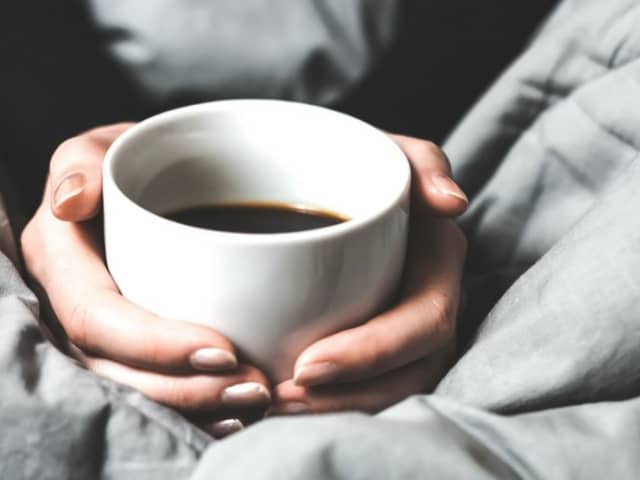A nightcap before bed— just the thing to help you fall asleep. Or is it?
While alcohol does have a sedating effect, a bedtime drink could start negatively impacting your sleep rhythms in just three nights.
“What alcohol gives on those first two nights, it takes away on subsequent nights. You become tolerant to it, and then your sleep is even worse than initially," says Timothy Roehrs, the director of research at the Sleep Disorders and Research Center of the Henry Ford Hospital and an expert on alcohol use and sleep. He wrote the most recent review of how alcohol affects sleep for the National Institute on Alcohol Abuse and Alcoholism (NIAA).
One Hour, One Drink
It takes the average social drinker 1 hour to metabolize 1 unit of alcohol, according to the NIAA.
Standard units of alcohol include:
- a 5-ounce glass of wine
- a 12-ounce beer
- a 1.5-ounce shot of distilled spirits, such as bourbon, tequila or vodka.
Other variables that determine alcohol metabolism include your weight, gender, family history and health status.
If you have a nightcap right before bed, your body will metabolize it during sleep.
“You'll have rebound wakefulness when the alcohol is completely metabolized," explains Roehrs. For example, if you have one drink at bedtime, you'll wake up, or rebound, an hour later. If you have four drinks, you may experience rebound wakefulness four hours after falling asleep.
An occasional drink before bed, such as at an evening wedding or other nighttime function, isn't going to ruin your sleep forever. But relying on a regular nightcap to help fall asleep, says Roehrs, can start a habit that's difficult to break.
“They're going to build tolerance, and to get the same affect, they'll have to take a higher dose and that's where the vicious circle comes in. That's where an individual can get entrapped with using alcohol as a sleep aid," says Roehrs.
Alcohol also interferes with the five phases of sleep that make up a normal sleep cycle. Over the course of an 8-hour night, your body will experience four to five complete cycles, which last 90 minutes to 120 minutes on average.
For some drinkers, alcohol before bed may cause them to skip stages 1 and 2, which involve lighter sleep, and go straight to stage 3 or 4, known as deep sleep or slow wave sleep, and stay there. During deep sleep our arousal threshold is at its highest, meaning it takes the loudest sound to awaken us. That's why several drinks may leave you feeling like you've been knocked out.
In a normal sleep cycle, REM sleep, also known as rapid eye movement or dream stage sleep, occurs within 90 of falling asleep and lasts for about 10 minutes. Then the next cycle begins. During REM sleep our arousal threshold is fairly low, says Roehrs, meaning it's easier to awaken.
Once you develop a tolerance to alcohol, you're left with an increased wakefulness usually during the second half of the night, says Roehrs. Since alcohol suppresses REM sleep during the first half of the night, evening drinks mean all the usual REM sleep occurs during the second half of the night. Since several drinks can lead to rebound waking, and it's easier to awaken during REM sleep, drinkers will more likely wake in the deep overnight hours.
"You're waking up say in the middle of the night, 3 a.m., 4 a.m., and your sleep is disturbed," says Roehrs.
For sleep to be its most restorative, it's important to experience all five phases, says Roehrs. A disrupted sleep cycle leaves you feeling fatigued and sleepy the next day, and may affect the ability to think and perform critically.
Just one night of disrupted REM sleep can cause our normal sleep cycle to get out of whack the following night, according to the National Institute of Neurological Disorders and Stroke.
“There's an interplay between the time you consume the alcohol and the dose of the alcohol," says Roehrs. Because of all the variables that go into your body's metabolism, in general, avoid drinking alcohol four hours before planned bedtime, recommends Roehrs.
Because of safety risks with drinking and driving, “one for the road" has fallen out of fashion. When it comes to sleep health, it may be time for nightcaps to follow suit.
Want even better sleep? 94% of Sleep Number® smart bed sleepers report better sleep quality vs a non-smart bed.”*
Like diet and exercise, quality sleep is essential for optimal wellbeing and performance. Because everyone's sleep needs are different, Sleep Number® smart beds sense your movements and automatically adjust firmness, comfort and support to keep you both sleeping comfortably. Find your Sleep Number® setting for your best possible night's sleep, and if you own a Sleep Number® bed, log in to your Sleep Number® Rewards account to see your exclusive offers, refer friends and more.
*Based on self-reported data from 90 incentivized, first-time users 3/23-6/23; 6 weeks with smart bed features disabled, then 6 weeks enabled
